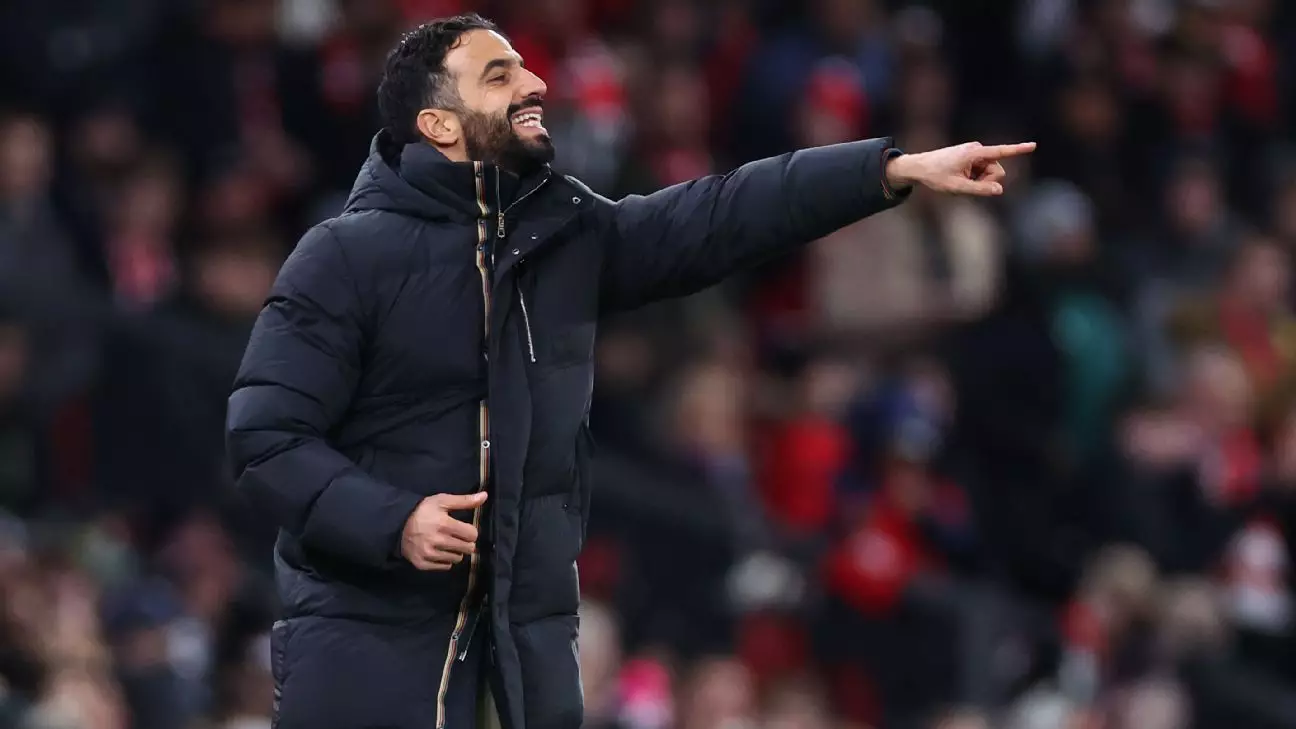Amidst the whirlwind of expectations at Manchester United, new manager Ruben Amorim finds himself at a crossroads of anxious anticipation and tactical experimentation. Coming off a narrow 3-2 success against Norwegian side Bodo/Glimt in the Europa League, Amorim’s tenure has not been without its bumps. The initial euphoria of securing that first victory is contrasted by the pressure of molding a squad to fit his tactical vision. As he himself noted, the early weeks have been “nerve-shredding,” reflecting the uncertainties inherent in a manager’s adaptation phase.
The intense emotions flowing through Amorim are indicative of a broader dilemma many managers face: the challenge of integrating personal tactical philosophies while addressing the pre-existing dynamics within the team. His affirmation that he “doesn’t know what will happen” suggests a precarious balance between hope and anxiety, a sentiment likely shared by the fans and stakeholders of the club. The pressing need for player familiarity amplifies the pressure, as tactical variations require players who can intuitively interpret and execute game plans.
In his quest to find the right balance for his squad, Amorim demonstrated decisiveness by making six changes to the team that previously settled for a draw against Ipswich. The introduction of players like Lisandro Martínez and Tyrell Malacia is not merely a game of numbers; it showcases his desire to unearth the right mix that embodies his footballing vision. The necessity for such adjustments is grounded in his observation of the team’s performance against Bodo/Glimt, suggesting that the players are still journeying through the intricacies of Amorim’s methods.
However, he acknowledges the growing pains that come with changing player personnel, particularly concerning fitness levels. Commenting on players like Rasmus Højlund and Antony, Amorim’s insights reveal the stark reality of modern football—where physical condition and tactical demands often collide. The need for endurance, especially late in tight contests, can heavily influence game outcomes and strategic implementations.
As Amorim prepares for the looming fixture against Everton, the sense of urgency increases. It is evident that he must navigate this next encounter with a keen awareness of player fitness and tactical deployment. His candid admission regarding the fatigue observed in players hints at the challenges awaiting teams that strive for an energetic pressing style. The looming question remains: can Amorim effectively translate his tactical principles into consistent performances without compromising player health and morale?
In this high-stakes environment, the experiences he gathers from each match will serve as critical learning points for both him and his squad. Ultimately, Amorim’s endeavor is not merely about securing victories but about instilling a resilient and adaptable playing philosophy within a historically prestigious club that has often wrestled with such issues. The approaching matches could very well define whether his vision for Manchester United materializes or finds itself bogged down in unpredictability.

